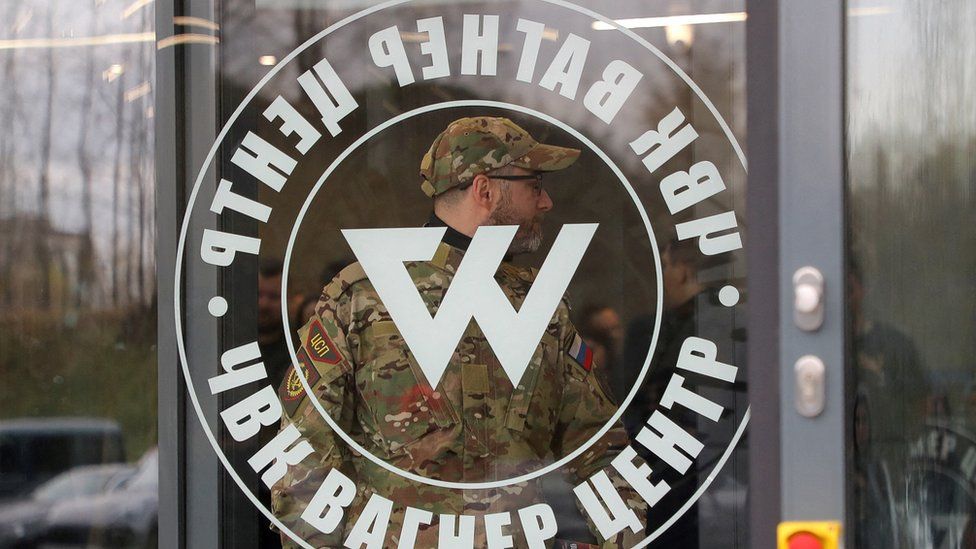Wagner Chief Refuses To Obey Decree In Latest Spat With Russian Defense Minister
June 11, 2023
Yevgeny Prigozhin, the founder of the notorious Wagner mercenary group, said he will not obey a new Russian Defense Ministry decree obliging all volunteer formations to sign a contract directly with the ministry in his latest spat with the nation’s military leadership.
The decree, signed by Russian Defense Minister Sergei Shoigu and posted on the agency's website, did not specify if all volunteer groups are required to sign contracts with the ministry or just some. Russia has more than 40 volunteer formations, with Wagner being the most prominent.
Wagner will not sign "any contracts with Shoigu," Prigozhin said on June 11 in response to the new decree as he berated the minister’s leadership. He said Wagner, which has played a major role in Russia’s invasion of Ukraine, already coordinates its actions with the military.
Deputy Defense Minister Nikolai Pankov said the purpose of the decree was to give volunteer formations legal status and that volunteers can continue to sign contacts with mercenary groups as long as they sign with the ministry.
"The conclusion of contracts by citizens with the state is, first of all, the extension of social protection and support measures established by the state to them, as well as to their family members," Pankov explained.
Pankov did not state why the ministry decided now – more than 15 months after the start of Russia’s invasion of Ukraine – to force volunteers to sign contracts directly with the state.
The decree does come amid a growing public fight between Prigozhin and Shoigu as Russia’s invasion falters. Prigozhin, who may have political aspirations, has slammed Shoigu and Chief of the General Staff Valery Gerasimov for Russia’s poor performance in the war.
The 62-year-old businessman and close associate of Russian President Vladimir Putin reiterated those criticisms as he refused to obey the new decree.
"Unfortunately, most military units do not have such efficiency [as Wagner], and precisely because Shoigu cannot properly manage military formations,” Prigozhin said.
The Defense Ministry did not immediately reply to Prigozhin’s comments.
Ukraine war: Russia moves to take direct control of Wagner Group
 REUTERS
REUTERSRussia appears to have moved to take direct control of Wagner, after months of infighting between defence officials and the private military group.
Deputy Defence Minister Nikolai Pankov said on Saturday "volunteer formations" will be asked to sign contracts directly with the ministry of defence.
The vaguely worded statement is widely believed to target the group.
But in a furious statement on Sunday, Wagner boss Yevgeny Prigozhin said his forces would boycott the contracts.
The private military group has played a major role in the war in Ukraine, fighting on the side of Russian forces.
But Prigozhin, who is said to hold political ambitions of his own, has been embroiled in a public dispute with Defence Minister Sergei Shoigu and military chief Valery Gerasimov for months.
He has repeatedly accused the pair of incompetence and of deliberately undersupplying Wagner units fighting in Ukraine.
"Wagner will not sign any contracts with Shoigu," Prigozhin said in response to a request for comment on the defence ministry's announcement. "Shoigu cannot properly manage military formation."
He insisted that his group was well integrated with the Russian military, but said that its effectiveness would be damaged by having to report to the defence minister.
While Saturday's announcement did not directly reference Wagner or any other paramilitary groups, Russian media suggested that the new contracts were a move to bring Prigozhin and his forces under control.
But the defence ministry said the move was designed to "increase the effectiveness" of Russian units fighting in Ukraine.
"This will give volunteer formations the necessary legal status, create common approaches to the organization of comprehensive support and the fulfilment of their tasks," the ministry said in a statement, adding that the contracts must be signed by 1 July.
The long-running tensions between the Wagner Group and the army have threatened to boil over in recent weeks.
Last week the group kidnapped a senior frontline army commander, Lt Col Roman Venevitin, after accusing him of opening fire on a Wagner vehicle near Bakhmut.
Lt Col Venevitin was later released, and in a video shared by Russian military bloggers he accused the group of stoking "anarchy" on Russia's frontlines by stealing arms, forcing mobilised soldiers to sign contracts with the group and attempting to extort weapons from the defence ministry.
Prigozhin called the comments - which appeared to be read from a script - "absolutely total nonsense".
He has also suggested that he is ready to deploy his troops on Russian soil, saying on Telegram that Wagner was ready to fight against insurrectionist forces in the Belgorod region.
In December, the US estimated that Wagner had around 50,000 troops fighting in Ukraine.
And the mercenary group has increasingly become a tool of Russian state power around the world. Its troops are currently believed to have been deployed in Mali, the Central African Republic,Sudan and Libya.



No comments:
Post a Comment